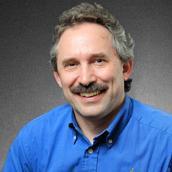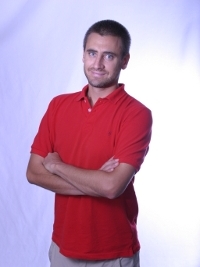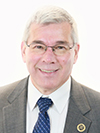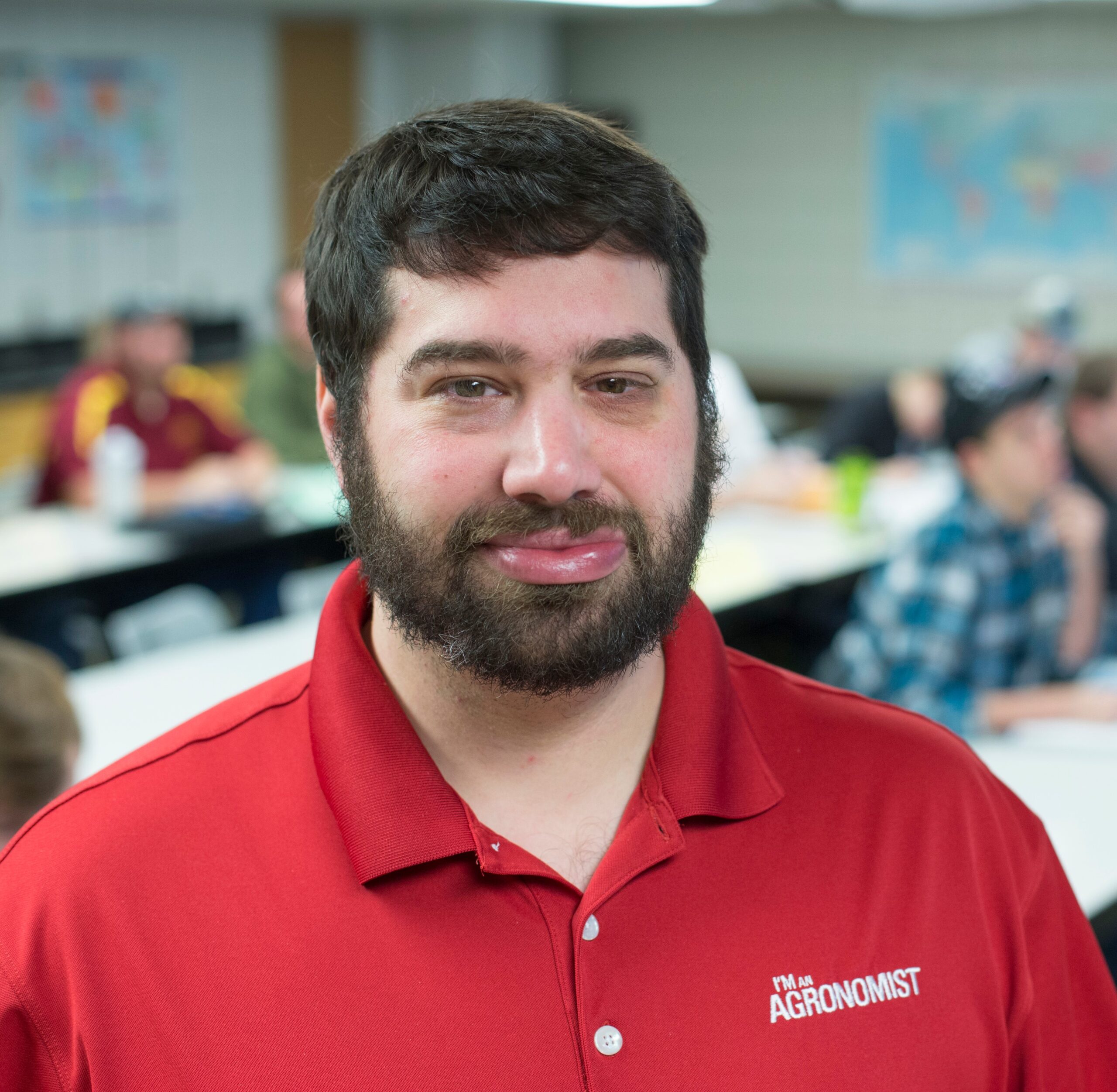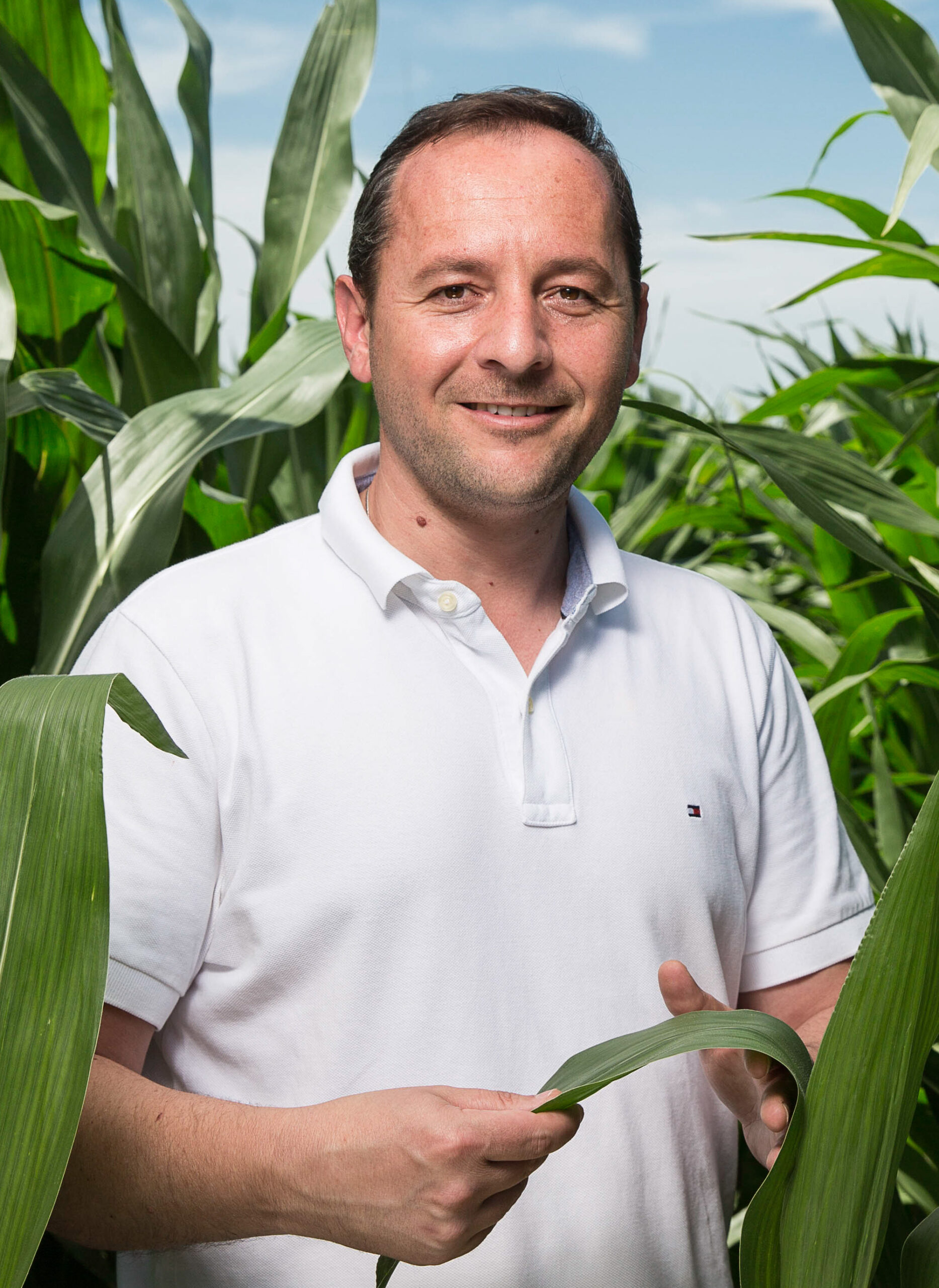Dr. Todey is a native Iowan with his BS and PhD from Iowa State in Meteorology and Agricultural Meteorology. He has spent two stints in South Dakota, first completing his MS at the South Dakota School of Mines and Technology and most recently as Associate Professor and State Climatologist for South Dakota at South Dakota State University. He is well known regionally as a speaker and media source on various climate issues and is the former president of the American Association of State Climatologists.
Hornbuckle, Brian
Dr. Brian Hornbuckle grew up in Shenandoah. After graduating from Brown University, he taught high school chemistry and physics in Clarksdale, MS, as a member of the Mississippi Teacher Corps. As a graduate student at the University of Michigan he earned degrees in electrical engineering and atmospheric science. He has been at Iowa State since 2003. Besides working in the Department of Agronomy, he holds courtesy appointments in the Departments of Geological and Atmospheric Sciences, and Electrical and Computer Engineering. He teaches courses in environmental physics, conducts research on the use of remote sensing in agricultural systems, and mentors both undergraduate and graduate students. Dr. Hornbuckle is the Director of Graduate Education for Agricultural Meteorology, a member of the department’s advisory council, and represents the department on the Iowa State Faculty Senate. He and his wife Jalene have three children and live in Nevada.
Miguez, Fernando
Fernando Miguez was born in Buenos Aires, Argentina and before coming to Iowa State was a a post-doc at the Energy Bioscience Institute (University of Illinois) working on developing general mathematical models for biomass crops. He has received a M.S. and Ph.D. in Crop Sciences and a M.S. in Applied Statistics, all from the University of Illinois. The research is integrative, involving crop physiology, agronomy, soils, mathematical modeling, statistics and applied spatial analysis with the goal of producing reliable predictions of cropping systems’ productivity, stability and ecosystem services.
The ultimate objective of our lab is to enhance productivity, stability and sustainability of cropping systems for food, feed and fuel in an environmental, social and economic context.
Our approach is to:
- create and analyze databases of crop performance,
- integrate field experimentation with statistical and process-based crop models and
- to produce spatial forecasts of productivity, stability and ecosystem services of cropping systems.
In our research we use a variety of methods:
- meta-analysis,
- linear, non-linear and generalized mixed models,
- process-based crop models,
- meteorological, soil and land-use databases,
- parameter estimation,
- spatial analysis.
Hatfield, Jerry
Gallus, William
Gutowski, William
Dr. Gutowski’s research concentrates on the role of atmospheric dynamics in climate. Central focuses are the dynamics of the hydrologic cycle and regional climate. Because processes on a wide range of spatial and temporal scales are important for both of these, his research program entails a variety of modeling and data analysis approaches. His work includes regional modeling of African, Arctic and East Asian climates and has significant collaboration with scientists in these regions. Much of his work has been through the Regional Climate Modeling Laboratory (PIRCS), which he coordinated with Dr. Eugene Takle and Dr. Ray Arritt (Agronomy Department).
Vanloocke, Andy
Andy’s passion for atmospheric sciences started in undergrad when a professor showed him the impact the science would make on the world. After getting his Masters and PhD at the University of Illinois at Urbana-Champaign, he crossed the Mississippi to join the Agronomy faculty at Iowa State. His time is divided between teaching both undergraduate and graduate courses and researching how our use of the land might impact agro-ecosystem processes in tandem with global change.
Archontoulis, Sotirios
Sotirios Archontoulis is a professor of integrated cropping systems at the Department of Agronomy. His research aims to predict impacts (e.g. climate change), explain causes (e.g. high/low yields) and design future strategies to improve crop productivity and environmental sustainability across spatial and temporal scales. His approach combines field experimentation and use of agricultural systems process-based models to explain Genotype x Environment x Management interactions and enable prediction and design at scale.
